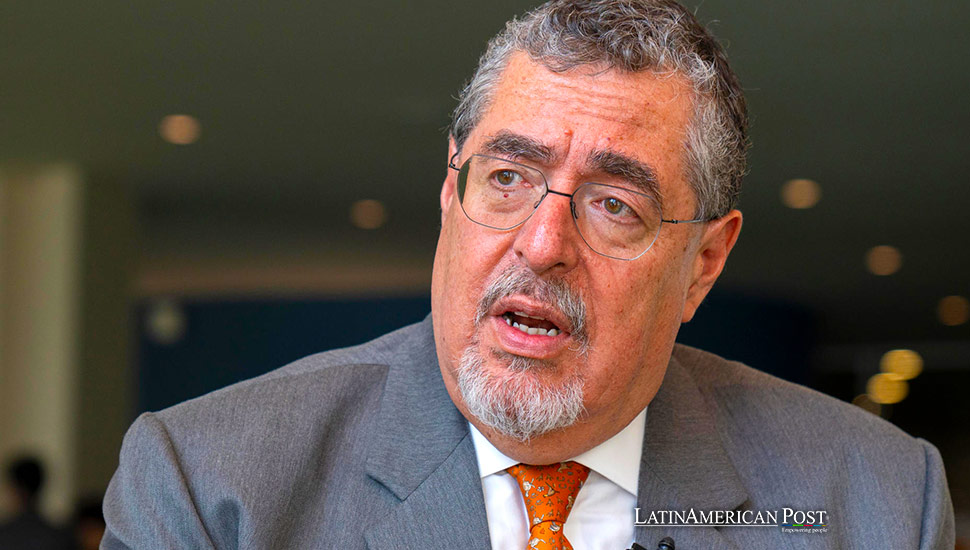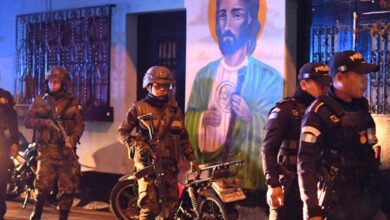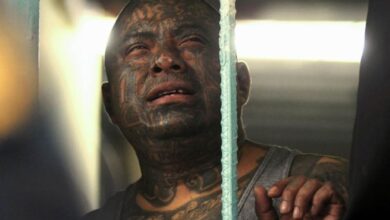Guatemala’s President Advocates Multilateralism at the UN to Combat Corruption

Guatemalan President Bernardo Arévalo de León addressed the UN, calling for multilateral cooperation to tackle corruption, which he described as a globalized phenomenon threatening state viability.
In his inaugural address to the United Nations, Guatemalan President Bernardo Arévalo de León underscored the urgency of the global fight against corruption. He argued that corruption, once seen as a consequence of poor governance, has now evolved into a global threat, enabling illicit activities and endangering the very fabric of states. This call for international cooperation was a testament to Arévalo’s commitment to addressing corruption and strengthening Guatemala’s ties with the global community.
During his speech at the UN General Assembly, President Arévalo underscored his administration’s commitment to rooting out corruption in Guatemala. He highlighted ongoing investigations into previous administrations’ corrupt practices and the importance of international cooperation in these efforts.
In an interview with EFE, Arévalo elaborated on his administration’s strategies to make corruption increasingly improbable within Guatemalan institutions and transform the environment that tolerates such practices. He pointed out that corruption has taken on a different character in recent decades, becoming a threat to the viability of states and demanding a united global response.
“It is no longer just a defect of poor governance. It has become part of the globalization process, a threat to the viability of states themselves,” Arévalo said. He called for a “general and united fight” among countries to establish mechanisms that hinder all types of corruption-related illicit flows.
Arévalo’s advocacy for multilateralism extended beyond corruption to other pressing global issues, such as climate change and migration driven by poverty and conflict. He joined other nations in calling for UN reform and a more equitable global financial system, emphasizing the role of the Economic and Social Council.
Regarding migration, Arévalo praised the cooperative efforts with neighboring countries Mexico and El Salvador to manage human mobility flows. He expressed confidence that these collaborations would continue regardless of potential political changes in the United States, including the possibility of a future administration under former President Donald Trump.
Challenges with Co-opted Institutions
Reflecting on the recent elections in Guatemala, Arévalo spoke about the overwhelming support for transformation and change, evidenced by the deployment of international observers and global condemnation of attempted coups. However, he lamented the lack of cooperation from the current Public Ministry in fighting corruption, pointing to Attorney General María Consuelo Porras’s obstructive stance.
Arévalo mentioned that a legislative initiative to replace the Attorney General is under consideration in Congress, with alternative measures being explored if this does not progress. He also requested the Organization of American States (OAS) to observe the upcoming elections of court magistrates due to the influence of political-criminal elites in previous processes.
The case of journalist José Rubén Zamora, imprisoned since 2022 on money laundering charges, exemplifies the politicization within Guatemala’s justice system, Arévalo noted. He expressed hope for conditions that would allow Zamora to regain his freedom, framing his imprisonment as persecution of a government critic.
Arévalo acknowledged the enormous challenges in making public institutions function effectively to meet citizens’ needs in health and education. He emphasized the government’s commitment to delivering expected results despite these institutions being co-opted.
Before his UN address, Arévalo met with UN Secretary-General António Guterres, who supported Guatemala during its tumultuous electoral process. They discussed the current international scenario and multilateralism challenges, a theme central to Arévalo’s speech.
Historical Context and Regional Efforts
The struggle against corruption in Latin America is not new. The region has seen numerous efforts to combat this endemic issue, often with significant international involvement. For instance, Guatemala had the International Commission against Impunity in Guatemala (CICIG), a UN-backed initiative from 2007 to 2019. CICIG was instrumental in uncovering high-level corruption, leading to the prosecution of top officials, including a sitting president.
However, CICIG’s disbandment in 2019 marked a setback in Guatemala’s anti-corruption efforts. President Arévalo’s call for renewed international cooperation reflects a recognition that domestic efforts alone are insufficient to combat deeply entrenched corruption networks.
Multilateral organizations like the United Nations and the Organization of American States have played crucial roles in supporting democratic processes and anti-corruption efforts in Latin America. Their involvement provides legitimacy, resources, and technical expertise that can bolster national efforts.
Arévalo’s plea for multilateralism aligns with broader regional efforts to enhance transparency and governance. Countries like Colombia, Brazil, and Mexico have also sought international cooperation to address corruption and improve governance. For example, Brazil’s Operation Car Wash (Lava Jato) was a landmark anti-corruption investigation with far-reaching political and economic implications across Latin America.
Economic Implications of Corruption
Corruption has severe economic consequences, hindering development, deterring investment, and exacerbating inequality. In Guatemala, corruption has historically undermined public trust in institutions, limited economic growth, and perpetuated poverty. By addressing corruption, Arévalo aims to create a more transparent and equitable economic environment that can attract investment and foster sustainable development.
Arévalo’s focus on multilateralism to combat corruption also underscores the interconnected nature of global economies. Illicit financial flows, money laundering, and transnational crime are issues that require coordinated international responses. Strengthening global frameworks to address these challenges is essential for building resilient and transparent economies.
Beyond economic implications, corruption erodes the social fabric and undermines democratic institutions. It leads to a lack of trust in public officials and institutions, resulting in political instability and social unrest. By promoting transparency and accountability, Arévalo seeks to rebuild public trust and strengthen democratic governance.
Significant challenges, including corruption, inequality, and political polarization, often characterize the political landscape in Latin America. Leaders like Arévalo, who advocate for transparency and good governance, are critical for fostering democratic stability and social cohesion.
The Path Forward
The international community’s support, including that of our esteemed readers, will be pivotal as Guatemala confronts these challenges. Arévalo’s unwavering commitment to combating corruption and promoting multilateralism is a positive stride towards addressing the systemic issues that have long plagued the country. However, the success of these efforts will hinge on sustained political will, effective implementation of reforms, and continued international cooperation, including the support and engagement of our readers.
Also read: Echoes of Genocide: Unearthing Guatemala’s Dark Past
Public awareness and civil society engagement are also vital. Empowering citizens to hold their leaders accountable and participate in democratic processes can drive meaningful change. Grassroots movements and non-governmental organizations are crucial in advocating for transparency and good governance.
President Bernardo Arévalo de León’s address to the United Nations marks a significant moment in Guatemala’s ongoing battle against corruption. Arévalo highlighted the need for collective action to address this pervasive issue by calling for multilateral cooperation and emphasizing its global nature.




